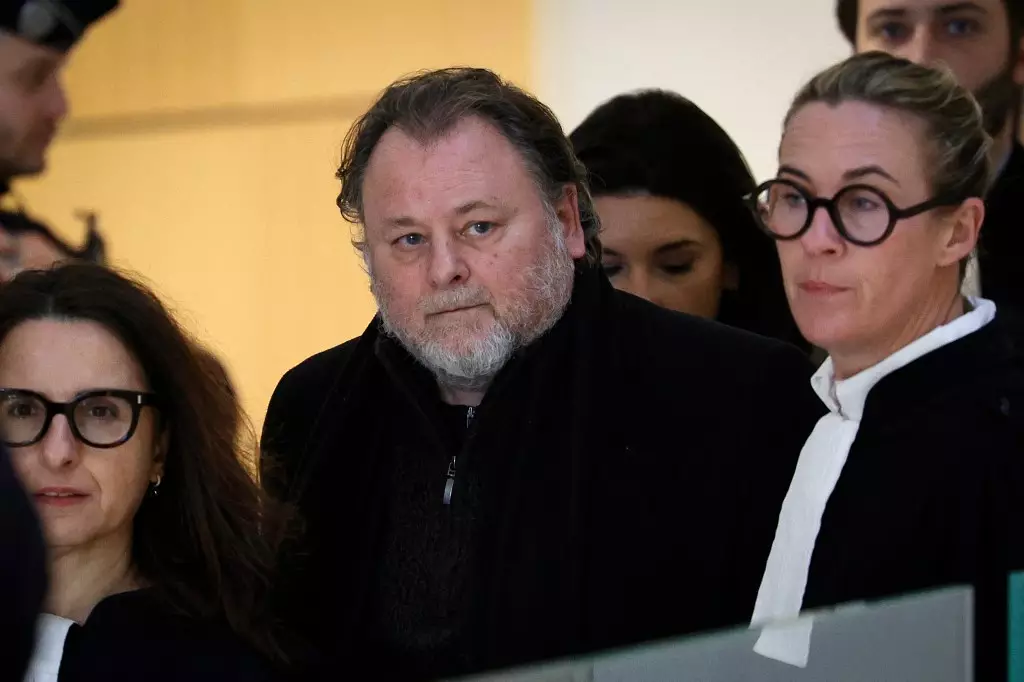The case of French director Christophe Ruggia, recently sentenced for sexual assault against actress Adèle Haenel, represents a significant chapter in the #MeToo movement within the film industry. The journey of this case not only illuminates the systemic issues surrounding sexual violence in cinema but also reflects the evolving attitudes towards such behavior in contemporary French society. The trial and the subsequent ruling mark a turning point that could influence the future of the film industry in France.
In 2019, Adèle Haenel bravely came forth with her accusations against Ruggia in an interview with the investigative outlet Mediapart. The actress revealed that Ruggia had sexually assaulted and molested her over a span of three years, starting when she was merely 12 years old during the filming of “The Devils,” while he was 36. This revelation sent shockwaves through the industry, which, at that juncture, had not fully embraced the #MeToo ethos. Haenel’s decision to speak out was not only a personal testament to her trauma but also a broader commentary on the troubling dynamics of power in the cinematic world.
Throughout the trial, lasting two days in early December, the tensions ran high. Ruggia’s denial of the accusations, suggesting they were born out of resentment due to not collaborating on another project, was met with disbelief by Haenel’s legal representative. Their portrayal of Ruggia’s claims as disingenuous hints at the larger narrative: the continuous victim-blaming and silencing of survivors. This kind of discourse places an unwarranted burden on victims to justify their experiences while providing repeat offenders an avenue to deflect accountability.
The reaction from the film industry after Haenel publicly accused Ruggia was overwhelmingly muted, contrasting sharply with the support often seen in similar cases elsewhere. This lack of empathy and backing for victims of sexual violence within French cinema indicates a prevailing culture of complicity that shields perpetrators. Notably, the following few months showcased the industry’s troubling tendencies: the César Awards honored Roman Polanski, a filmmaker with a notorious past, shortly after Haenel’s revelations. This celebration of Polanski, amidst ongoing allegations of sexual misconduct against him, practically symbolized a slap in the face against Haenel and other survivors, signaling a disheartening acceptance of toxic behaviors.
Moreover, protests against the inclusion of individuals under investigation for sexual violence at the César ceremony highlighted the growing discontent with how such cases were treated. Following Haenel’s exit from the 2020 awards, which she labeled as a protest against systemic complacency, the French film industry began to show signs of a necessary reckoning. The César Academy’s subsequent decision to amend its rules—to bar individuals facing official investigations from awards—could represent a pivotal shift; however, the fact that such individuals still remain eligible for nominations suggests that further change is required.
Although the sentence of two years under house arrest and two years suspended may appear lenient to some, the conviction itself is a landmark decision within a landscape that has been slow to act against powerful figures. It symbolizes an important win for those daring enough to speak out, like Haenel, who have faced societal backlash and professional risks for doing so. The recent case ignites discussions about responsibility and accountability not only for the perpetrators but for the industry as a whole.
The resurgence of the #MeToo movement, amplified by subsequent allegations from other actresses including Judith Godrèche, indicates a shift in societal perspectives. With each brave voice that emerges to challenge the status quo, there is potential for the French film industry—and society at large—to foster an environment that prioritizes safety and justice for survivors. As the narrative of Adèle Haenel evolves into a broader call for systemic change, it may well provide the impetus needed for meaningful reforms, helping to obliterate the silence that has so long protected abusers.
The implications of the Ruggia-Haenel case extend beyond the courtroom. It acts as a catalyst for a cultural transformation, signaling a much-needed departure from tolerance towards abusive behavior, thereby reshaping the landscape for future generations within the arts. The dialogue initiated by this case is significant for the evolution of the #MeToo movement not just in France, but globally, challenging artistic communities to prioritize ethics and respect in their artistic endeavors.


Leave a Reply